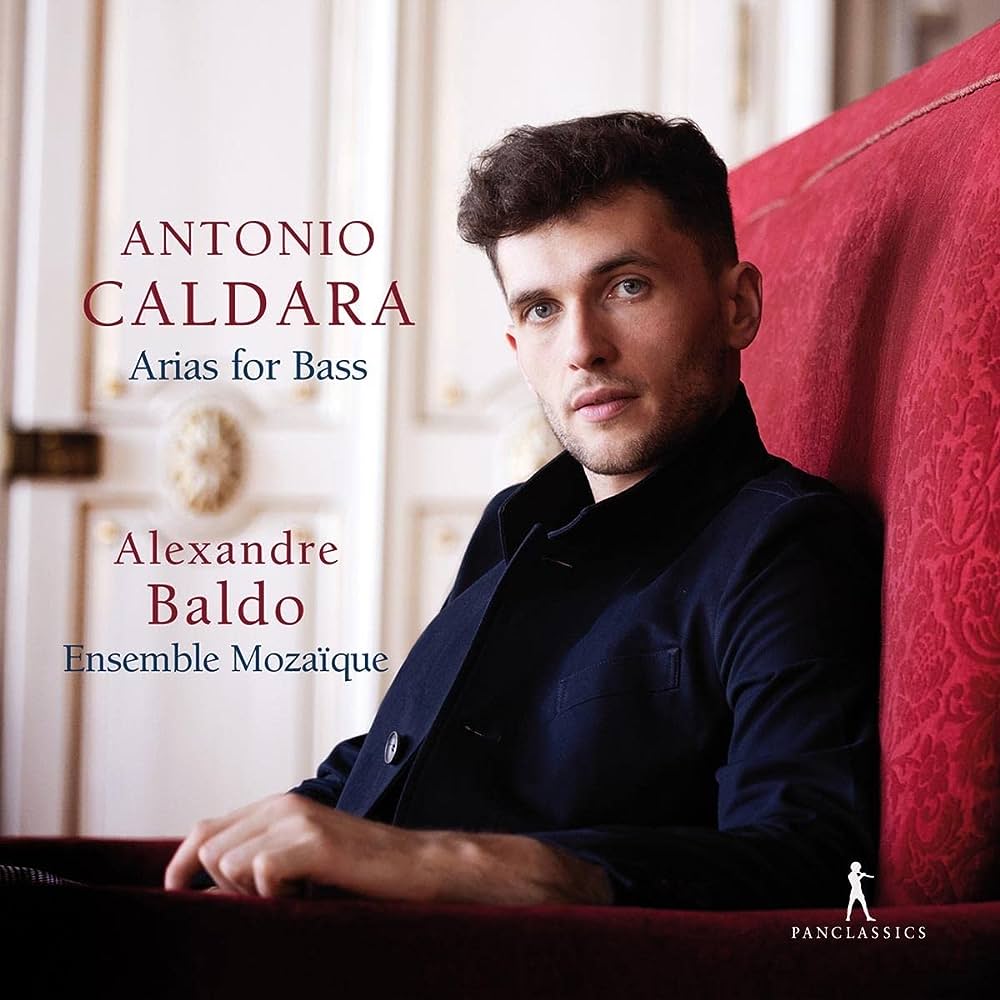ANTONIO CALDARA · ARIAS FOR BASS – ALEXANDRE BALDO
Rediscovering Virtuosity and Emotion
Sarah Dunlop, November 2023
Antonio Caldara (1670/1–1736), a prolific Italian composer, largely known for his operas and oratorios, has been given new life through the remarkable album “Arias for Bass.” Alexandre Baldo, a talented bass-baritone, along with the Ensemble Mozaïque, unveils a collection of previously overlooked treasures, shedding light on Caldara’s astonishing vocal compositions. The album not only showcases the exceptional virtuosity required by these works but also delves into the profound emotional depths Caldara embedded in his arias.
The album’s inception, stemming from Baldo’s discovery of forgotten manuscripts at the Österreichische Nationalbibliothek, adds an element of historical intrigue. Caldara’s two-decade stay in Vienna is vividly portrayed through the lens of Christoph Praun, a prominent bass singer of the Viennese Hofkapelle during that era. Baldo’s insight into Praun’s vocal qualities lends authenticity to his own interpretation of these arias, making the album not just a musical journey but also a glimpse into the past.
The recording opens with “Sù cedete al dio dell’armi” from “La contesa de’ numi” (1723), immediately highlighting the album’s central elements: Baldo’s impressive vocal range and the intricate coloratura passages that define Caldara’s compositions. The Ensemble Mozaïque, consisting of string quartet, harpsichord, and theorbo/baroque guitar, provides a vibrant and lively accompaniment, enhancing the performance’s overall dynamism.
Baldo’s voice is characterized by its youthful freshness, transitioning seamlessly from a high baritone to a resonant bass. This versatility proves essential in navigating the complexity of Caldara’s music, especially evident in the recitative “Così dunque tradisci” from “Il Temistocle” (1736). Baldo’s expressive prowess shines through, bringing out the emotional depth of the aria that follows. The album includes a selection from Caldara’s later opera, which adds historical context given its premiere shortly before the composer’s death.
Throughout the album, Caldara’s collaboration with librettists like Metastasio and Apostolo Zeno is evident. The aria “Vedea modesto molto” from “Mitridate” showcases Baldo’s ability to convey a myriad of emotions, aided by the warm tone and nuanced phrasing. A pinnacle moment arrives with “Quando il tenero tuo labbro” from “Gesù presentato nel tempio,” where Baldo’s rendition transcends mere singing, evoking deep, soul-stirring sentiments.
While Caldara’s genius is evident, it’s acknowledged that some arias exhibit formulaic traits. This is attributed to the composer’s heavy workload and potential exhaustion, hinting at a touch of repetition in his works. Nevertheless, the album’s significance lies in unearthing these forgotten gems and presenting them in meticulously crafted renditions.
In addition to the vocal pieces, the inclusion of two instrumental compositions provides a well-rounded view of Caldara’s creative output. The Ensemble Mozaïque’s skillful interpretation keeps the instrumental tracks engaging and meaningful.
In conclusion, “Arias for Bass” is a captivating journey into Antonio Caldara’s musical legacy, meticulously curated by Alexandre Baldo and the Ensemble Mozaïque. The album not only showcases Baldo’s vocal prowess but also brings to light the captivating beauty and virtuosity present in Caldara’s arias. This collection is a testament to the dedication of artists who strive to resurrect forgotten masterpieces and ensure they find their rightful place in the annals of classical music history.

